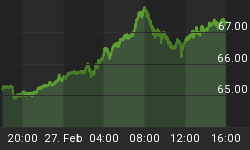A bit of capitalism flows in any society, even North Korea. It’s a natural offshoot of the human condition—that drive to survive self-sufficiently; that uncontrollable desire to … sell something. It’s the entrepreneurial spirit, and it’s hard to suppress entirely, even for all-controlling Pyongyang.
So markets, according to a recent joint study by a Washington-based think tank and a South Korean counterpart—are very much part and parcel of North Korean life, even if they don’t operate exactly the way we think.
According to the study, North Korea has 436 officially sanctioned markets that bring the government an estimated $56.8 million in revenue from fees, rents and taxes. North Korea even has a glossy 2018 ‘commodities’ catalog designed to show off a new line of consumer goods.
The study, called Beyond Parallel, says both rural and urban markets “appear to be deeply integrated into both the economy and society”, with an average of 48 markets in each of the nine provinces. However, the study noted, while the people demand “bottom up marketization”, the government has long sought to “control, manipulate, and institutionalize the markets”.
Since July 2002, North Korea has allowed official, state-sanctioned markets to operate. Since then, markets have expanded rapidly, forcing Pyongyang to introduce more regulations in order to reduce inflation and manage supply and demand imbalances, among other things.
But there are also unofficial markets, or black markets that are sometimes allowed to operate and sometimes targeted by raids, with vendors made to pay bribes to continue operations. Related: Gold, Silver Up As Trade War Fears Take A Breather
And mobile communications are contributing to the solidification of the North Korean market trend, even if consumers can only communicate through the state’s intranet and closed cellular system. It still “suggests there is evidence that a latent civil society could be emerging around these markets as citizens share information, commerce and further promote growing autonomy of livelihood through these markets”, Beyond Parallel said.
As they communicate more, they come to realize that the government simply isn’t providing them with what they want, based on microsurveys conducted by the researchers. A full 100 percent of respondents told surveyors that the government’s public distribution system “does not provide them with what they want for a good life”. And a massive 72 percent said they received almost all of their household income from markets, while 83 percent said that goods and information from outside North Korea were of “greater impact on their lives”.
Beyond the markets, which may be permanent buildings or open-air collections of vendor stalls, Pyongyang is hoping that a new line of “Made in North Korea” goods will help it works towards economic sustainability.
Pyongyang is pushing everything from a disproportionate list of beverages and bags of cement to cures for cancer, a homegrown take on Viagra and ostrich skins, according to the Associated Press. International sanctions means none of the gems in Pyongyang’s 207-page catalog will be tempting shoppers outside the country any time soon, but there’s a fair amount of symbolism to be found here—and for once, it’s not about nuclear weapons.
By Charles Benavidez for Safehaven.com
More Top Reads From Safehaven.com
















